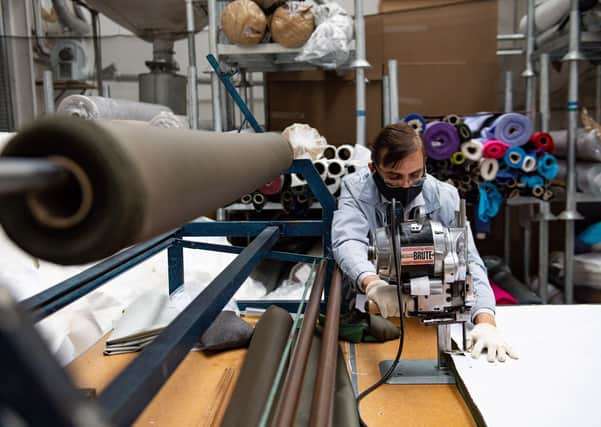Top economist: Employment across NI may look very different post-pandemic


Ulster University senior economics lecturer Dr Esmond Birnie was speaking to the News Letter after the number of people claiming universal credit in NI almost doubled in two months, from 70,000 to 126,00 by the end of April.
“Covid has probably accelerated certain adverse shifts which were happening,” he said. “The decline of sectors which provided low-skill employment, for example retail and basic manufacturing, and probably also puts a question mark over the future expansion of leisure, hospitality and tourism, where the NI economy had hoped to expand the number of low-skill jobs.
Advertisement
Hide AdAdvertisement
Hide Ad“The future, post-Covid world of work will probably put even more premium on things like the ability to use digital, or working from home via a laptop. Both of those are more likely to be found in higher rather than lower income households.”
However, some factors could also favour lower skilled workers.
He added: “Some types of jobs which previously had been migrating to the lower cost countries, notably China, may now be retained here in the West as businesses and governments become concerned by the strategic weakness of being too reliant on very long supply chains. So some types of [local] manufacturing might experience a modest revival.”
There are also concerns, he said, about China “controlling parts of the UK economy”.
Advertisement
Hide AdAdvertisement
Hide AdHe also sees that more resources and higher pay might be devoted to the health and social care sectors.
“Previously we have been heavily reliant on migrant workers in those areas – perhaps too reliant, so there may be some jobs for people coming from a low-skill background. There may also be more political support for increasing the National Living Wage more rapidly than the growth of average wages.”
The government might also reflect on the importance of UK self-sufficiency in food terms. “It is possible ... we are all a bit more sceptical about being dependent on very long supply chains,” he said.
A major issue for Stormont is that it has “a big oncoming dilemma” about whether to replicate the high level of EU subsidy for NI farmers, which could impact on spending, for example, on schools, health and economic development.
Advertisement
Hide AdAdvertisement
Hide AdDr Birnie also noted the lack of migrant workers at present causing problems in harvesting UK crops.”It does raise the wider question of why, given the level of economic inactivity in NI and GB, we became so dependent on migrant labour for such jobs in the first place?”
A message from the Editor:
Thank you for reading this story on our website. While I have your attention, I also have an important request to make of you.
With the coronavirus lockdown having a major impact on many of our advertisers - and consequently the revenue we receive - we are more reliant than ever on you taking out a digital subscription.
Subscribe to newsletter.co.uk and enjoy unlimited access to the best Northern Ireland and UK news and information online and on our app. With a digital subscription, you can read more than 5 articles, see fewer ads, enjoy faster load times, and get access to exclusive newsletters and content. Visit https://www.newsletter.co.uk/subscriptions now to sign up.
Advertisement
Hide AdAdvertisement
Hide AdOur journalism costs money and we rely on advertising, print and digital revenues to help to support them. By supporting us, we are able to support you in providing trusted, fact-checked content for this website.
Alistair Bushe
Editor